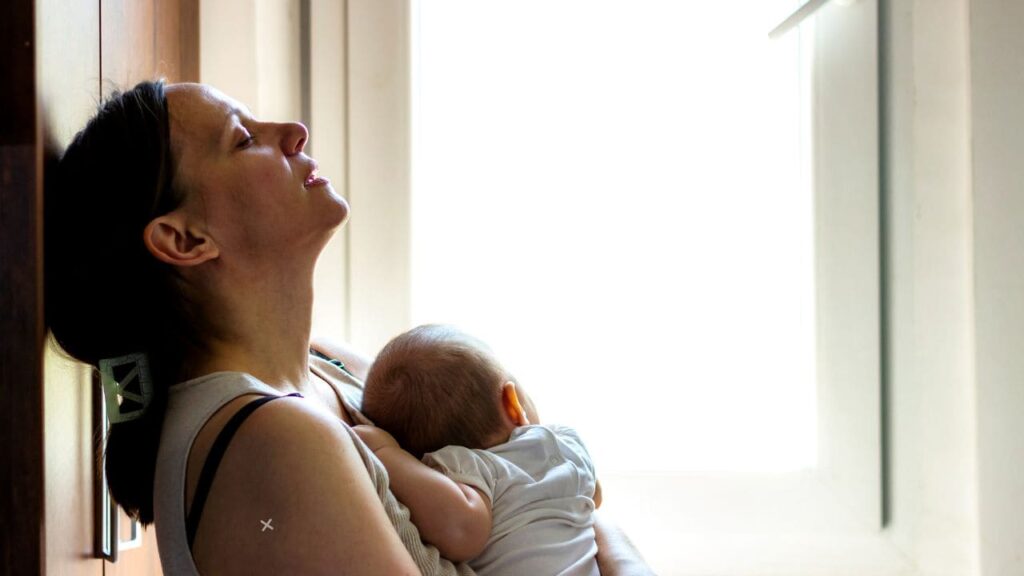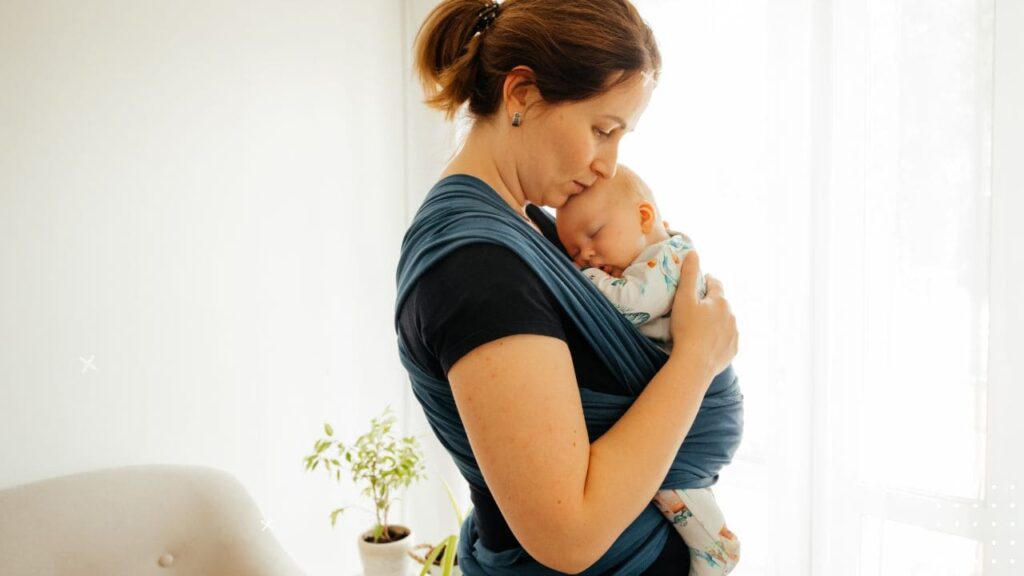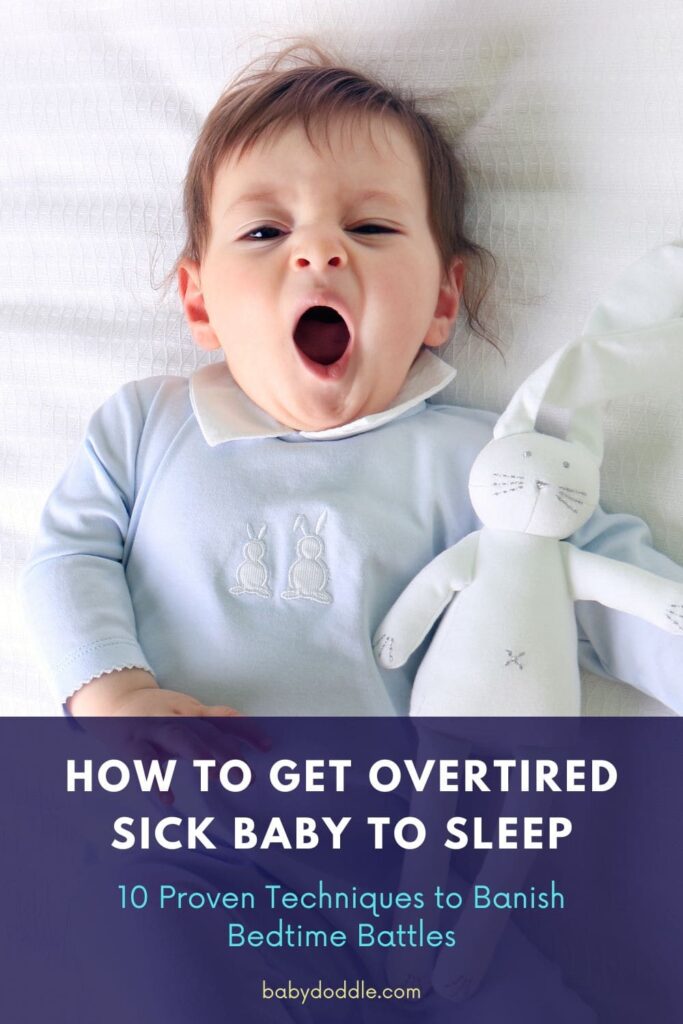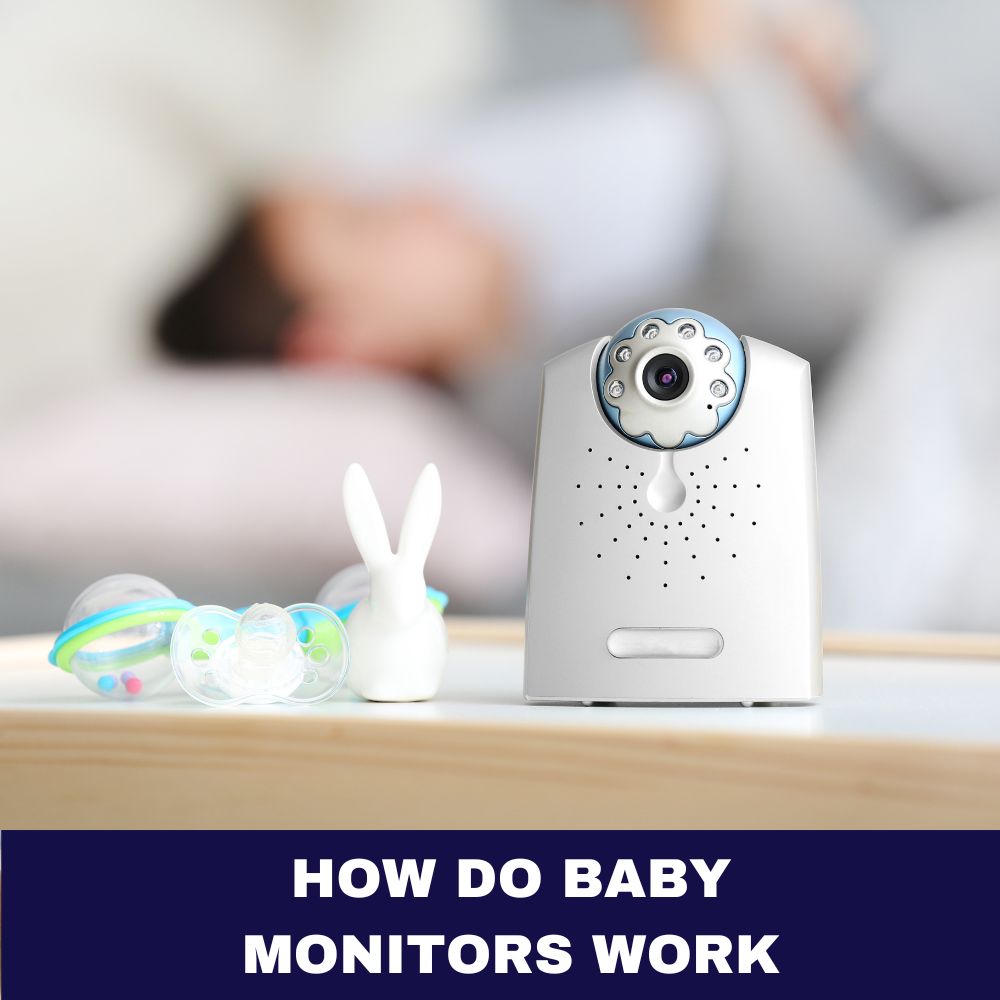Picture this: it’s 2 AM, and you’re pacing the nursery with a fussy, sniffling bundle in your arms. Your little one is sick, overtired, and seemingly allergic to sleep. Sound familiar? If you’re nodding your head (or barely keeping it up), you’re not alone. Getting an overtired sick baby to sleep can feel like trying to solve a Rubik’s cube in the dark – while riding a unicycle. But don’t worry, we’ve got your back!
In this guide, we’ll dive deep into the world of baby sleep, illness, and the magical intersection of the two. We’ll explore why your sick little one is fighting sleep like it’s their job, and arm you with 10 proven techniques to help your overtired, under-the-weather baby drift off to dreamland. So grab a cup of coffee (you’ll need it), and let’s get started on our mission to banish those bedtime battles!
Understanding Overtiredness in Sick Babies
Before we jump into our sleep-saving techniques, let’s talk about what’s really going on when your baby is overtired and sick. It’s like a perfect storm of crankiness, isn’t it?

When babies are overtired, their bodies produce stress hormones like cortisol and adrenaline. These hormones are great for keeping us alert when we’re in danger, but they’re not so great for sleep. It’s like your baby’s body is throwing an unwanted dance party when all you want is for them to catch some Z’s.
Now, add illness to the mix. When your baby is sick, their sleep patterns often go haywire. They might sleep more during the day and less at night, or wake up frequently due to discomfort. It’s like their internal clock decided to take a vacation right when you need it most.
Signs of an overtired baby include:
- Rubbing eyes or ears
- Yawning excessively
- Arching back
- Avoiding eye contact
- Becoming clingy or fussy
When your baby is both overtired and sick, these signs might be even more pronounced. They might cry inconsolably, refuse to be put down, or seem to fight sleep with every fiber of their tiny being.
Remember, an overtired baby often has a harder time falling asleep and staying asleep. It’s counterintuitive, but the more tired they are, the harder it can be for them to drift off. It’s like being so hungry you can’t decide what to eat – their little bodies and brains are just too overwhelmed to settle down.
Next steps: Start paying close attention to your baby’s sleep cues. Try to put them down for sleep at the first sign of tiredness, before they become overtired. This might mean adjusting their sleep schedule while they’re sick to accommodate more frequent but shorter naps.
The Impact of Illness on Baby’s Sleep Patterns
When illness strikes, your baby’s sleep patterns can go from somewhat predictable to wildly erratic. It’s like their sleep schedule decided to play a practical joke on you both. But understanding these changes can help you navigate the choppy waters of sick baby sleep.
How Baby’s Sleep May Change When They’re Sick
- Increased sleep: Many babies sleep more when they’re sick. Their bodies are working hard to fight off the illness, and sleep is a crucial part of that process. It’s like their immune system is saying, “All hands on deck! Time to power down and focus on healing.”
- Disrupted sleep cycles: While they might sleep more overall, sick babies often have trouble staying asleep for long periods. They might wake up more frequently due to discomfort, congestion, or fever.
- Reversed day-night patterns: Some babies decide that nighttime is the right time for being awake when they’re sick. It’s like they’ve suddenly developed jet lag without ever leaving the house.
- Increased clinginess: Your baby might only want to sleep while being held. This is perfectly normal – they’re seeking comfort when they’re not feeling their best.
It’s important to note that while increased sleepiness is common, excessive lethargy can be a red flag. If your baby is difficult to wake or seems unusually lethargic, it’s time to call the doctor. Trust your instincts – you know your baby best.

Common Sleep Challenges for Sick Babies
- Difficulty falling asleep: Between discomfort and overtiredness, your sick baby might struggle to drift off.
- Frequent night wakings: Congestion, coughing, or fever can disrupt your baby’s sleep cycles.
- Resistance to being put down: Your baby might wake up as soon as you try to transfer them to their crib.
- Changes in sleep position preferences: A stuffy nose might make your back-sleeper suddenly prefer sleeping on their side or tummy (always follow safe sleep guidelines, though!).
Remember, these changes are temporary. Your baby’s sleep patterns will return to normal as they recover. In the meantime, flexibility is key. Your usual sleep routines might need to take a backseat to comfort and care.
Next steps: Keep a sleep log during your baby’s illness. Note when they sleep, for how long, and any difficulties they have. This can help you identify patterns and adjust your approach accordingly. It can also be valuable information to share with your pediatrician if sleep issues persist.
Creating the Ideal Sleep Environment for a Sick Baby
When your baby is sick, their usual sleep environment might need a few tweaks to become a healing haven. Think of it as creating a five-star hotel room for your little patient – comfort is key!
Temperature and Humidity
Maintaining the right temperature and humidity can make a big difference in your sick baby’s comfort level. Aim for a room temperature between 68-72°F (20-22°C). It’s like creating a Goldilocks zone – not too hot, not too cold, but just right.
When it comes to humidity, a level between 40-60% is ideal. Dry air can exacerbate congestion and coughing, while too much humidity can promote mold growth. It’s a delicate balance, but getting it right can help your baby breathe easier and sleep better.
Using a Humidifier
A cool-mist humidifier can be a game-changer when your baby is congested. It adds moisture to the air, helping to loosen mucus and soothe irritated nasal passages. It’s like giving your baby’s respiratory system a gentle, misty hug.
However, humidifiers require regular cleaning to prevent mold and bacteria growth. Here’s a quick guide:
| Frequency | Cleaning Task |
|---|---|
| Daily | Empty the tank and refill with fresh water |
| Weekly | Deep clean with vinegar solution |
| Monthly | Replace the filter (if applicable) |
Lighting and Noise
When your baby is sick, they might be more sensitive to light and noise. Blackout curtains can be a lifesaver, turning day into night at any hour. For noise, a white noise machine can help mask household sounds and create a consistent, soothing audio environment.
Dressing Your Baby for Sleep When Sick
Dressing a sick baby for sleep is all about layers. Start with a light layer like a onesie, then add a sleep sack or light blanket as needed. Remember, you want your baby to be comfortable, not sweating through their jammies.
Here’s a quick guide based on room temperature:
| Room Temperature | Clothing |
|---|---|
| Above 75°F (24°C) | Short-sleeve onesie |
| 70-75°F (21-24°C) | Long-sleeve onesie |
| Below 70°F (21°C) | Long-sleeve onesie + sleep sack |
Always check your baby’s chest or back (not hands or feet) to gauge their temperature. If it feels hot or sweaty, remove a layer.
Next steps: Take some time to optimize your baby’s sleep environment. Invest in a reliable thermometer and hygrometer to monitor temperature and humidity. Experiment with white noise and room-darkening solutions. Remember, what works for one baby might not work for another, so be prepared to make adjustments based on your baby’s responses.
10 Proven Techniques to Get Your Overtired Sick Baby to Sleep
Now that we’ve set the stage for sleep, let’s dive into our 10 proven techniques to help your overtired, sick baby catch those much-needed Z’s. Remember, every baby is unique, so don’t be discouraged if the first technique you try doesn’t work. It’s like finding the right key for a lock – sometimes you need to try a few before you find the perfect fit.
1. The Gradual Wind-Down Method
This technique is all about slowly dialing down the energy in the room. Start about 30 minutes before your ideal sleep time. Dim the lights, lower your voice, and engage in quiet activities. It’s like slowly turning down the volume on a radio – you’re giving your baby’s body and mind clear signals that it’s time to sleep.
Here’s a sample wind-down routine:
- Dim the lights
- Speak in soft tones
- Gentle massage or cuddling
- Quiet story or lullaby
- Final feeding (if appropriate)
2. The Comfort Feeding Technique
When babies are sick, they often find comfort in feeding. Whether you’re breastfeeding or bottle-feeding, offering a feed before sleep can help soothe your baby. The sucking motion is naturally calming, and a full tummy can promote longer sleep stretches.
However, be cautious about creating a feed-to-sleep association that might be hard to break later. Try to keep your baby awake during the feed, and put them down drowsy but awake if possible.
3. The Gentle Rock-and-Roll Approach
Gentle motion can be incredibly soothing for babies. You can try rocking in a chair, swaying while standing, or even taking a slow walk around the room. The key is to keep the movement gentle and rhythmic – think of it as a dance where your baby is leading.
As your baby starts to drift off, gradually slow your movements. This helps ease the transition from your arms to the crib. Remember, the goal is to put your baby down drowsy but awake whenever possible.
4. The White Noise Wonder
White noise can be a miracle worker for sleep, especially for sick babies. It masks sudden noises that might startle your baby awake and provides a consistent, soothing sound that can lull them to sleep. You can use a dedicated white noise machine, a fan, or even a white noise app on your phone.
Different babies respond to different sounds, so don’t be afraid to experiment. Some options include:
- Classic white noise (like radio static)
- Nature sounds (rain, ocean waves)
- Heartbeat sounds
- Low, humming noises (like a vacuum cleaner)
5. The Soothing Bath Ritual
A warm bath can work wonders for a sick, overtired baby. The warm water is naturally relaxing, and it can help bring down a slight fever through evaporation. Plus, it’s a great way to wash away the day’s germs.
Here’s a calming bath routine:
- Set the bathroom to a comfortable temperature
- Use warm (not hot) water
- Add a few drops of baby-safe essential oil like lavender (optional)
- Gently wash your baby, talking softly
- Wrap in a warm towel and move to a dimly lit room for dressing and final wind-down
6. The Calming Massage Technique
Gentle massage can help relax tense muscles and soothe a fussy baby. It’s also a wonderful way to bond with your little one. Use a baby-safe oil and start with gentle strokes on the legs, arms, and tummy. Always move from the center of the body outwards, and watch your baby’s cues – if they seem uncomfortable, stop.
Here’s a simple massage routine:
- Legs and feet: Long strokes from hip to ankle, then gently squeeze and roll each toe
- Arms and hands: Long strokes from shoulder to wrist, then gently open the palm and stroke each finger
- Tummy: Use clockwise circular motions (helps with digestion)
- Back: Gentle strokes from neck to bottom
7. The Swaddle Solution
Swaddling can help even older babies feel secure when they’re sick. It recreates the snug feeling of the womb and can prevent the startle reflex from waking your baby. However, always follow safe swaddling guidelines – the hips should be able to move, and the swaddle shouldn’t be too tight around the chest.
If your baby is too old for a traditional swaddle, consider a sleep sack with slight compression, like those designed for transitioning toddlers.
8. The Darkroom Magic
Darkness is a powerful sleep cue for babies. When the room is dark, their bodies naturally start producing melatonin, the sleep hormone. Use blackout curtains or shades to create a cave-like environment, even for daytime naps.
If your baby seems afraid of the dark, a very dim nightlight can help. Look for ones with red or orange light, as these wavelengths interfere less with melatonin production.
9. The Consistent Bedtime Routine
Even when your baby is sick, trying to maintain some semblance of your usual bedtime routine can be helpful. The familiarity can be comforting, and it continues to reinforce good sleep habits. You might need to shorten or simplify the routine when your baby is unwell, but keeping the basic structure can help.
A simple sick-day bedtime routine might look like this:
- Quick, warm bath
- Gentle massage with lotion
- Fresh diaper and pajamas
- Short story or lullaby
- Final feeding (if appropriate)
- Lights out and white noise on
10. The Caregiver Calm Technique
This last technique might be the most important of all. Babies are incredibly perceptive to the emotions of their caregivers. If you’re stressed and anxious, your baby will pick up on that. Taking a few deep breaths and consciously relaxing your body can make a big difference.
Try this quick relaxation exercise:
- Take a deep breath in for 4 counts
- Hold for 4 counts
- Exhale for 4 counts
- Repeat 3-5 times
Remember, this too shall pass. Your calm presence is one of the most powerful tools you have in helping your overtired, sick baby sleep.
Next steps: Try incorporating one or two of these techniques into your bedtime routine tonight. Pay attention to which ones seem to resonate most with your baby. Remember, consistency is key – give each method a fair try before moving on to the next.

Managing Specific Symptoms for Better Sleep
When your baby is sick, specific symptoms can make sleep particularly challenging. Let’s look at some common issues and how to address them.
Clearing Congestion
A stuffy nose can make it hard for your baby to breathe comfortably, especially when lying down. Here are some strategies to help:
- Saline drops: These can help loosen mucus. Gently place a few drops in each nostril before feeding or sleep.
- Nasal aspirator: After using saline drops, you can use a bulb syringe or nasal aspirator to gently suction out the mucus. Be gentle – overdoing it can irritate the nasal passages.
- Elevated sleep position: For babies over 12 months, you can slightly elevate the head of the crib mattress. Never use pillows or sleep positioners, as these aren’t safe for sleep.
Helping with Nighttime Coughs
Coughing can disrupt sleep for the whole family. While cough medicines aren’t recommended for young children, there are other ways to help:
- Honey (for babies over 12 months): A teaspoon of honey before bed can help soothe the throat and reduce coughing. Never give honey to babies under 12 months due to the risk of botulism.
- Humidifier: Moist air can help soothe irritated airways and loosen mucus.
- Elevated sleep position: As with congestion, slightly elevating the head of the crib mattress can help (for babies over 12 months).
Fever Management
Fever can make your baby uncomfortable and disrupt sleep. Here’s how to help:
- Appropriate pain relievers: Consult your pediatrician about using infant acetaminophen or ibuprofen. Always follow dosage instructions carefully.
- Cool compress: A lukewarm washcloth on the forehead can provide comfort.
- Light clothing: Dress your baby in light layers to prevent overheating.
- Hydration: Offer frequent feeds to prevent dehydration.
Remember, while fever can be scary, it’s often a sign that your baby’s body is fighting the infection. However, always consult your pediatrician if you’re concerned about your baby’s temperature or overall condition.
Next steps: Make sure you have supplies on hand for symptom management – saline drops, a nasal aspirator, a reliable thermometer, and any medications recommended by your pediatrician. Having these ready can help you respond quickly to your baby’s needs in the middle of the night.
Prioritizing Feeding for Sick Babies
When your baby is sick, maintaining good nutrition and hydration is crucial. It supports their immune system and helps them recover faster. However, sick
babies often have decreased appetites, making feeding a challenge. Here’s how to prioritize feeding when your little one is under the weather:
- Offer frequent, smaller feeds: Your baby might not be up for full feeds, but offering smaller amounts more often can help maintain hydration and nutrition.
- Watch for hunger cues: Sick babies might not cry for food as usual. Look for subtle signs like rooting, lip-smacking, or bringing hands to mouth.
- Breastfeeding benefits: If you’re breastfeeding, continue as much as possible. Breast milk adapts to fight your baby’s illness and provides perfect nutrition.
- Bottle feeding tips: If bottle-feeding, your baby might prefer smaller amounts. Try using a slower-flow nipple if congestion is making feeding difficult.
- Hydration is key: If your baby isn’t eating well, focus on maintaining hydration. For babies under 6 months, breast milk or formula is all they need. Older babies can have small sips of water, but check with your pediatrician first.
Remember, it’s normal for babies to eat less when they’re sick. As long as they’re having wet diapers and seem hydrated, a temporary decrease in appetite isn’t usually cause for concern. However, if you’re worried about your baby’s intake, always consult your pediatrician.
Next steps: Keep a feeding log while your baby is sick. Note when they feed, for how long, and any difficulties. This can help you ensure they’re getting enough and provides valuable information for your doctor if needed.
When to Seek Medical Help
While most childhood illnesses pass with home care and time, there are situations where professional medical help is necessary. Here are some signs that it’s time to call the doctor:
- Fever: For babies under 3 months, any fever (100.4°F/38°C or higher) requires immediate medical attention. For older babies, prolonged high fever or fever with other concerning symptoms warrants a call to the doctor.
- Dehydration: Signs include fewer wet diapers, dry mouth, sunken fontanelle (soft spot), or excessive sleepiness.
- Difficulty breathing: Look for rapid breathing, wheezing, or retractions (skin pulling in around ribs or neck).
- Persistent symptoms: If your baby’s illness lasts longer than expected or seems to be getting worse instead of better.
- Changes in behavior: Excessive sleepiness, unusual irritability, or difficulty waking your baby are all reasons to seek medical advice.
- Rash: Especially if accompanied by fever or if the rash doesn’t blanch (turn white) when pressed.
- Vomiting or diarrhea: If severe or persistent, these can quickly lead to dehydration in babies.
Remember, you know your baby best. If your gut tells you something isn’t right, don’t hesitate to reach out to your pediatrician. It’s always better to err on the side of caution when it comes to your baby’s health.
Next steps: Program your pediatrician’s number into your phone if you haven’t already. Familiarize yourself with your doctor’s after-hours policy and the location of the nearest emergency room. Being prepared can help you stay calm if urgent situations arise.
Medications and Sleep Aids: What’s Safe and What’s Not
When your baby is sick and struggling to sleep, it’s tempting to reach for over-the-counter remedies. However, many medications aren’t safe for babies and young children. Here’s a quick guide:
| Safe (with pediatrician approval) | Not Recommended |
|---|---|
| Infant acetaminophen | Over-the-counter cough and cold medicines |
| Infant ibuprofen (6 months+) | Antihistamines as sleep aids |
| Saline nasal drops | Adult sleep medications |
| Honey (12 months+) | Herbal remedies without doctor approval |
Always consult your pediatrician before giving any medication to your baby. Even “natural” remedies can have side effects or interact with other treatments.
For safer sleep aids, consider:
- White noise: Helps mask disruptive sounds and can be soothing.
- Blackout curtains: Blocks light that might interfere with sleep.
- Consistent bedtime routine: Helps signal to your baby that it’s time to sleep.
Remember, while these aren’t medications, they can be effective in promoting better sleep for your sick baby.
Next steps: Clear out any outdated or inappropriate medications from your medicine cabinet. Stock up on pediatrician-approved basics like infant acetaminophen, saline drops, and a good thermometer.
Recovering the Sleep Routine After Illness
As your baby starts to feel better, you might find that their sleep habits are still a bit off. This is normal! Here’s how to gently guide your little one back to a healthy sleep routine:
- Gradual transition: Don’t expect to jump right back into your pre-illness routine. Take it slow and be patient.
- Consistent bedtime: Try to get back to a regular bedtime as soon as your baby is feeling better.
- Nap adjustments: Your baby might need extra daytime sleep as they recover. Gradually reduce nap times to get back to your usual schedule.
- Maintain sleep cues: Continue using sleep associations like white noise or a specific bedtime routine.
- Be flexible: Some days might be better than others. That’s okay! Progress isn’t always linear.
- Watch for sleep cues: Your baby might get tired earlier than usual as they recover. Be ready to adjust bedtime accordingly.
Remember, it can take a few days to a week for sleep patterns to normalize after an illness. Be patient with your baby and yourself during this transition period.
Next steps: Start reintroducing elements of your normal routine as your baby feels better. Keep a sleep log to track progress and identify any lingering issues.
Preventing Overtiredness in Sick Babies
While you can’t always prevent your baby from getting sick, you can take steps to prevent them from becoming overtired when they are unwell. Here are some strategies:
- Watch for early sleep cues: Yawning, rubbing eyes, or becoming quiet are all signs your baby might be ready for sleep.
- Offer more frequent naps: Sick babies often need more sleep. Don’t be afraid to let them nap more often than usual.
- Darken the room: Make the sleep environment conducive to rest at any time of day.
- Limit stimulation: Keep activities quiet and calm to avoid overtiring your sick baby.
- Be flexible with schedules: Your usual routine might need to go out the window for a few days, and that’s okay.
- Early bedtime: If your baby seems tired earlier than usual, it’s fine to move bedtime up.
Remember, an overtired baby often has more trouble falling asleep and staying asleep. By preventing overtiredness, you’re setting the stage for better sleep, which in turn helps your baby recover faster.
Next steps: Pay close attention to your baby’s sleep cues over the next few days. Try to respond to these cues promptly to prevent overtiredness.
FAQ – How to Get Overtired Sick Baby to Sleep
How can I tell if my baby is overtired or just fussy from being sick?
Overtiredness in babies can sometimes look similar to general fussiness from illness, but there are a few key differences. An overtired baby might show signs like eye-rubbing, yawning, looking away from stimulating things, or becoming very clingy. They might also display “wired” behavior – seeming hyperactive or resistant to sleep despite being exhausted.
A baby who’s fussy from illness might show more specific discomfort signs like pulling at ears (possible ear infection), excessive drooling (teething), or congested breathing. They might also have a fever or changes in appetite.
If you’re unsure, try offering a sleep opportunity. An overtired baby will often fall asleep quickly once given the chance, while a baby who’s fussy from illness might continue to show signs of discomfort even in a sleep-conducive environment.
Is it okay to let my sick baby sleep more than usual?
Absolutely! Sleep is crucial for healing and recovery. When babies (and adults) are sick, their bodies often demand more sleep to direct energy towards fighting off the illness. It’s completely normal and beneficial for a sick baby to sleep more than usual.
However, do keep an eye on your baby’s overall alertness when awake and their hydration levels. If your baby seems excessively lethargic when awake or is having fewer wet diapers than normal, it’s worth checking in with your pediatrician.
Also, while it’s fine to let your baby sleep more, try to ensure that at least some of this sleep happens at night. Keeping some semblance of a day-night rhythm can help prevent complete sleep schedule disruption.
Should I wake my sick baby to give medicine or take their temperature?
This depends on your pediatrician’s advice and the specific situation. In general, if your baby has a high fever or is in discomfort, it’s often recommended to wake them to administer medication. This helps keep the fever under control and ensures your baby isn’t going too long without relief.
For temperature checks, it’s usually not necessary to wake a sleeping baby unless you’re specifically instructed to do so by your doctor. Most modern thermometers can take a reading without disturbing sleep too much.
Always follow your pediatrician’s specific instructions regarding medication schedules and monitoring. If you’re unsure, don’t hesitate to call and ask for clarification.
How can I comfort my sick baby without creating bad sleep habits?
It’s natural to want to provide extra comfort when your baby is sick, and it’s okay to be a bit more flexible with your usual sleep rules. However, you can still maintain some boundaries to prevent creating habits that will be hard to break later:
- Respond promptly to your baby’s needs, but try to put them back in their crib if they fall asleep in your arms.
- Use comforting techniques like gentle patting or shushing instead of always picking up your baby.
- If you do need to hold your baby more, try to do it in their room with low lighting to maintain sleep associations with that space.
- Continue to use your usual sleep cues (like white noise or a specific phrase) even while providing extra comfort.
Remember, a few days of extra cuddles won’t undo months of sleep training. Once your baby is feeling better, you can gently guide them back to their usual sleep habits.
When should I be concerned about my sick baby’s sleep patterns?
While changes in sleep patterns are normal when babies are sick, there are some situations that warrant concern:
- If your baby is excessively sleepy and difficult to wake for feeds.
- If your baby isn’t sleeping at all despite seeming exhausted.
- If sleep disturbances continue for more than a few days after other symptoms have resolved.
- If your baby seems to be in pain or extreme discomfort that’s preventing sleep.
- If changes in sleep are accompanied by other worrying symptoms like difficulty breathing, severe vomiting or diarrhea, or signs of dehydration.
In any of these cases, it’s best to consult with your pediatrician. They can help determine if there’s an underlying issue that needs addressing and provide guidance on how to help your baby get the rest they need to recover.
Remember, trust your instincts. If something doesn’t feel right about your baby’s sleep or overall condition, don’t hesitate to seek medical advice. It’s always better to err on the side of caution when it comes to your baby’s health and well-being.












